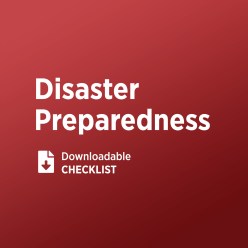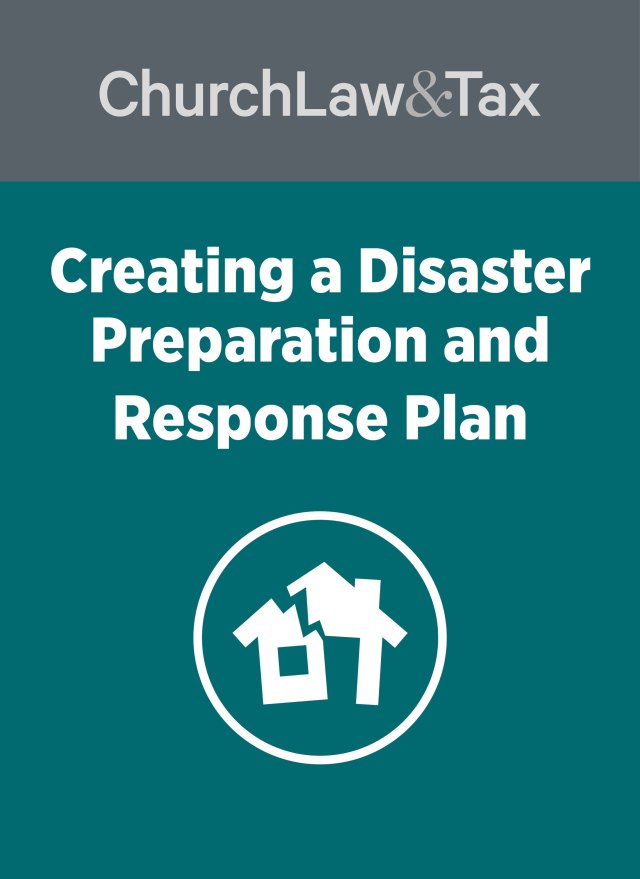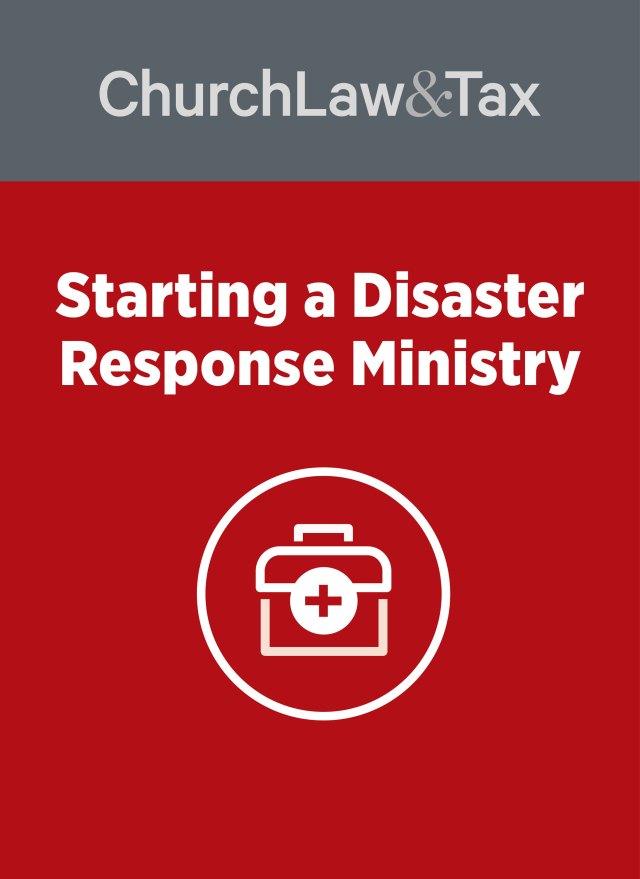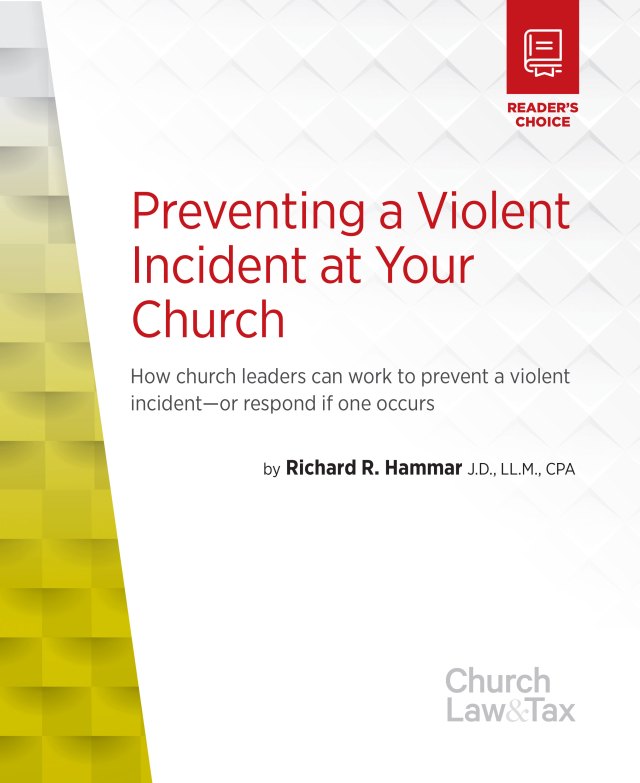Use the following checklist to gauge how your church is doing at preparing for a disaster.
Download a PDF version of this checklist.
When churches plan for disasters, it’s always with the hope that the plans will be unnecessary. But if a disaster—be it a hurricane, a tornado, a fire, flooding, or something else—does strike your church, you’ll be glad you’ve taken the following things into account.
Take inventory. Having a record of the church’s possessions is extremely helpful in the event of a disaster. But this needs to be done prior to the disaster. A post-disaster inventory undoubtedly will be incomplete—and it will lack the photos (or video) that can streamline the post-disaster process.
Think “when” not “if.” When discussing the potential for disasters, it’s easy to focus on the unlikelihood of each scenario. Focusing on what to do when it happens, however, forces church leaders to take the risks seriously—no matter how slim the chances are. And if the unlikely becomes a reality, your church community will be grateful that its leaders took the planning process seriously.
Creating a crisis response team. A crisis response team should be well-trained and authorized to act when necessary. Most importantly, this team needs to be familiar with the necessary procedures in the event of a variety of different disasters—because the immediate needs will vary depending on the type of emergency.
A crisis response team should also be prepared to see the church through the crisis—not just immediately, but also following up on any needs that emerge after the initial phase of the crisis.
Focus on the people—not just the problem. When a disaster strikes, people are going to be impacted. The more traumatic the disaster is, the more people will need spiritual and emotional support. Focusing on physical needs (such as rebuilding, cleaning up, replacing destroyed or damaged property, etc.) often is easier than ministering to those who might be reeling—emotionally and physically.
As you help with the practical needs that surface in the wake of a disaster, be constantly looking for people who need a word of encouragement or someone willing to process things with them. Plan to ask the questions, “How are you doing?” and “Do you want to talk about it?” And be sure to listen—to really listen—to their responses.
Stay disciplined. In the aftermath of a disaster, people are often eager to lend a hand—willing to do anything necessary. But in these times, one’s spiritual disciplines are often put on hold. Ignoring spiritual disciplines is a recipe for another type of disaster. When things are difficult, relief workers need to make their spiritual lives a priority—even when it seems like there are more pressing needs.






